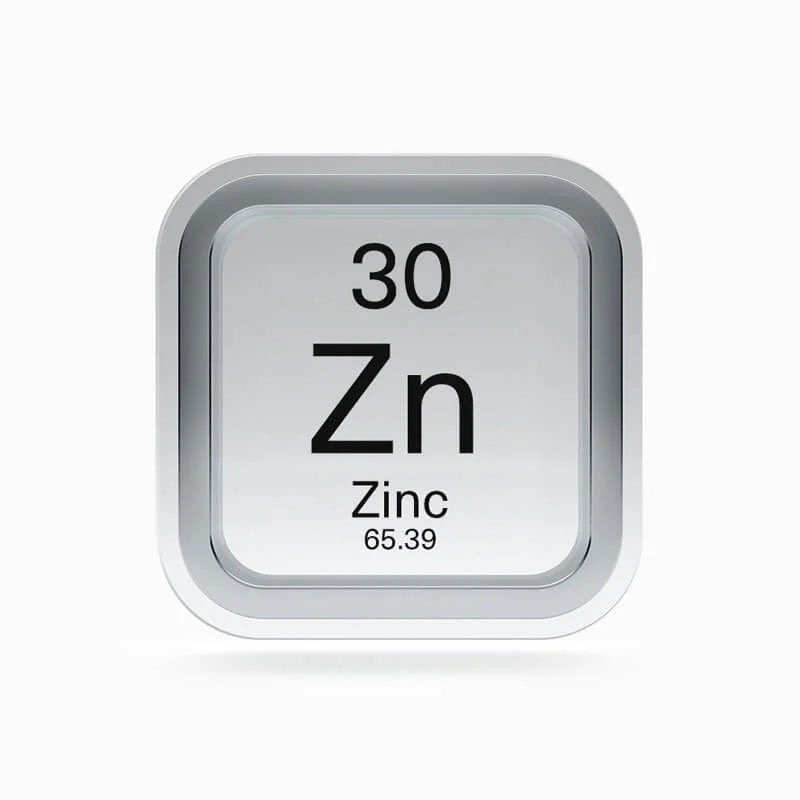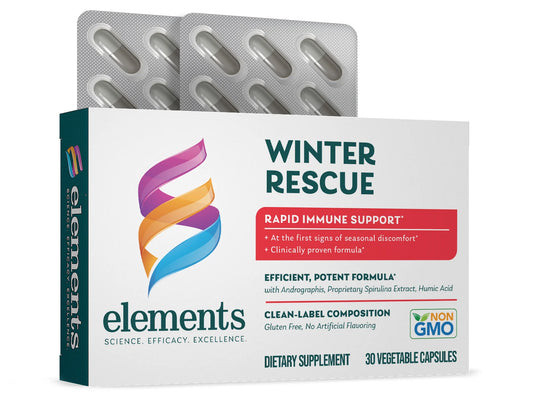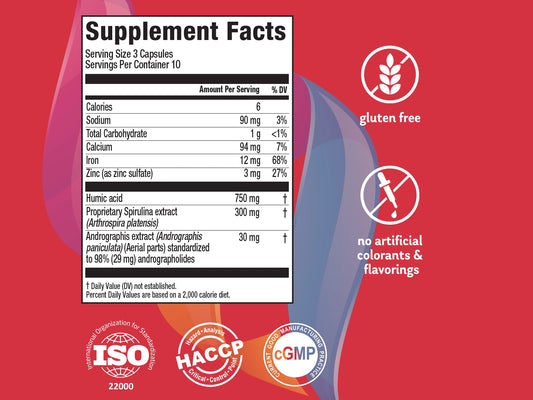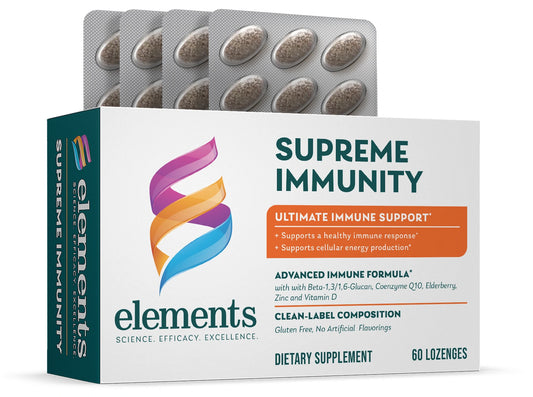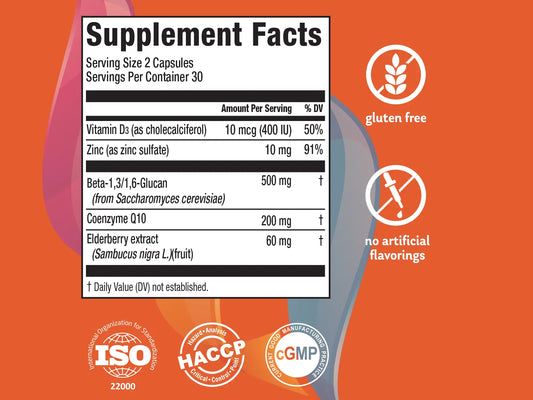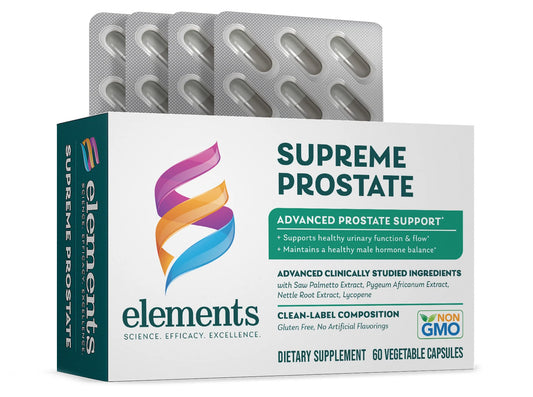Zinc is the most abundant trace element in biological systems, performing a number of vital functions.
It is involved as a structural element in enzyme systems related to gene expression, cellular function and division, and DNA synthesis1.* It also helps protect cells from oxidative stress and helps the body regulate the immune system2-5.*
The role of zinc is crucial for nutrient metabolism, normal growth, and overall physical development1,6,7.*
Balanced zinc levels in the body are important for maintaining a healthy immune system, and supporting the balance between immune tolerance and immune protection1,6-8.*
The important role of zinc for prostate health continues to attract the attention of scientists. Observations with men reveal that zinc is predominantly concentrated in bones and the prostate gland. Zinc is essential in supporting the healthy function of prostate by maintaining the normal levels between testosterone and dihydrotestosterone9.* Several experimental trials suggest that zinc may also support integrity of prostate cells by different mechanisms10-12.*
- Efsa Panel on Dietetic Products N, Allergies. Scientific Opinion on the substantiation of health claims related to zinc and function of the immune system (ID 291, 1757), DNA synthesis and cell division (ID 292, 1759), protection of DNA, proteins and lipids from oxidative damage (ID 294, 1758), mainte. EFSA Journal. 2009/10// 2009;7(9):1229-n/a. doi:10.2903/j.efsa.2009.1229
- EFSA Panel on Dietetic Products N, Allergies. Scientific Opinion on the substantiation of a health claim related to zinc and normal function of the immune system pursuant to Article 14 of Regulation (EC) No 1924/2006. EFSA Journal. 2014;12(5):3653. doi:https://doi.org/10.2903/j.efsa.2014.3653
- Marreiro DdN, Cruz KJC, Morais JBS, Beserra JB, Severo JS, de Oliveira ARS. Zinc and Oxidative Stress: Current Mechanisms. Antioxidants (Basel, Switzerland). 2017/3// 2017;6(2)doi:10.3390/antiox6020024
- Yu M, Lee W-W, Tomar D, et al. Regulation of T cell receptor signaling by activation-induced zinc influx. The Journal of experimental medicine. 2011/4// 2011;208(4):775-785. doi:10.1084/jem.20100031
- Hojyo S, Fukada T. Roles of Zinc Signaling in the Immune System. Journal of immunology research. 2016;2016:6762343-6762343. doi:10.1155/2016/6762343
- Dardenne M. Zinc and immune function. European journal of clinical nutrition. 2002/8// 2002;56 Suppl 3:S20-3. doi:10.1038/sj.ejcn.1601479
- Winchurch RA, Togo J, Adler WH. Supplemental zinc restores antibody formation in cultures of aged spleen cells. III. Impairment of II-2-mediated responses. Clinical immunology and immunopathology. 1988/11// 1988;49(2):215-222.
- Wessels I, Maywald M, Rink L. Zinc as a Gatekeeper of Immune Function. Nutrients2017.
- Netter A, Hartoma R, Nahoul K. Effect of zinc administration on plasma testosterone, dihydrotestosterone, and sperm count. Archives of andrology. 1981/8// 1981;7(1):69-73. doi:10.3109/01485018109009378
- Christudoss P, Selvakumar R, Fleming JJ, Gopalakrishnan G. Zinc status of patients with benign prostatic hyperplasia and prostate carcinoma. Indian journal of urology : IJU : journal of the Urological Society of India. 2011/1// 2011;27(1):14-18. doi:10.4103/0970-1591.78405
- Sauer AK, Vela H, Vela G, Stark P, Barrera-Juarez E, Grabrucker AM. Zinc Deficiency in Men Over 50 and Its Implications in Prostate Disorders. Frontiers in oncology. 2020;10:1293-1293. doi:10.3389/fonc.2020.01293
- Prasad AS. Zinc is an Antioxidant and Anti-Inflammatory Agent: Its Role in Human Health. Frontiers in Nutrition2014.



